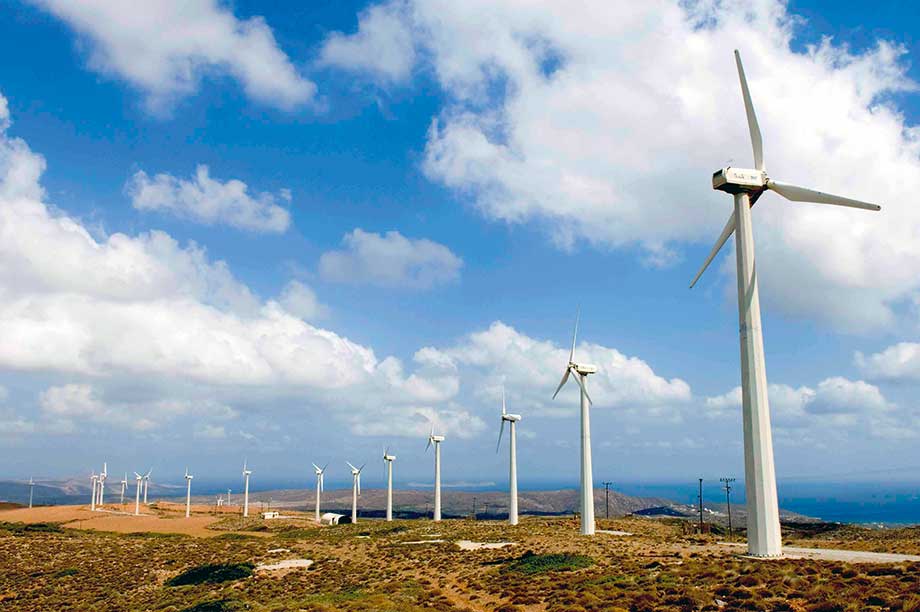"We have seen a lot of activity in 2016, and that has been a pleasant surprise," said Marios Zangas, general manager for Vestas Greece, who noted that Vestas has signed six firm orders for Greek projects, totalling 83MW, since the start of the year.
"I think the main reason is that financing is once again available for our customers doing renewable-energy projects in Greece, despite the challenging macroeconomic situation. At the end of the day, banks still need to do their core business of giving loans, and our industry is considered to be one with a very strong risk profile," he added.
Greece added 113MW of new capacity in the first half of 2016, bringing the total to 2,248MW, according to the Hellenic Wind Energy Association (HWEA). That compares to the 159MW added in all of 2015.
This summer alone, a number of turbine deals have been announced. Vestas secured a deal to supply eight V112-3.3MW turbines for Greek firm CNI's 26MW Parthenio wind farm, while Nordex said it would supply Terna Energy with a total of seven N100/300 and two N90/2500 turbines for the 16.5MW Mougoulious wind farm and the 14.9MW Plagia Psiloma project.
Gamesa said it would supply 12 G52-850 kW turbines for a 10.2MW facility for an unnamed customer on the island of Eubea, southern Greece.
Expectations of a change in the renewable-support scheme has also helped encourage developers to accelerate projects, according to Zangas. Wind projects that have secured a feed-in-tariff (FIT) with a power purchase agreement signed by 31 December 2015 are entitled to receive the FIT if they are operating by June 2018.
The FIT is good for 20 years and amounts to €105/MWh for mainland Greece projects not enjoying other forms of subsidies and €82/MWh for mainland projects with subsidies, while wind farms on non-connected islands receive €110/MWh and €90/MWh, respectively.
Pipeline
"There is still a considerable pipeline of these projects (that had PPAs by December 2015)," said Minas Kitsilas, a lawyer in the Athens office of Norton Rose Fulbright.
While this is expected to provide some comfort for capacity additions until June 2018, the reference price foreseen in Greece's new incentive scheme - corresponding to about €98/MWh for all wind farms — is also "quite decent", Kitsilas added.
The new mechanism, approved by parliament in August, replaces the FIT with a feed-in premium (FIP). But while market players agree Greece's wind sector continues to have considerable potential, HWEA chairman and CEO Ioannis Tsipouridis pointed out that much of the detail in the legislation must still be clarified, including if and when competitive auctions will be implemented for wind projects to receive the premium, making the future investment environment less predictable.

.png)



.png)









